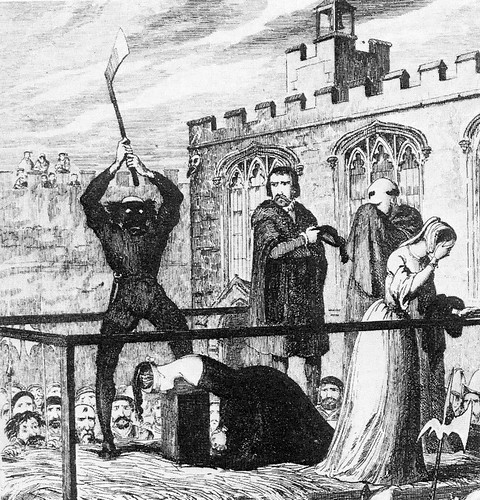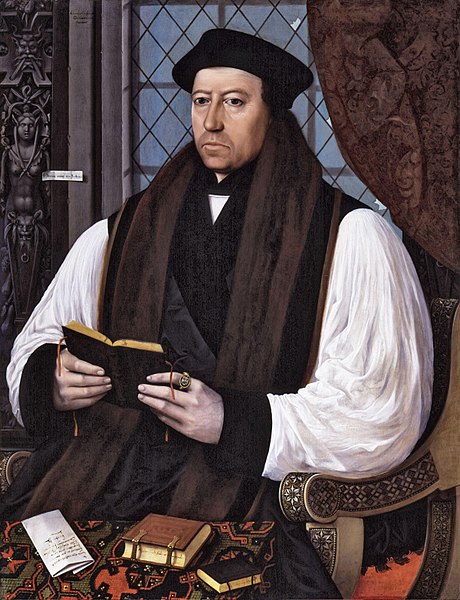By Gad ! This idea that all we need to do to live in harmony is to erase religion.
Turn out the churches, mosques, citadels, synagogues, temples and convert them to
apartments, nightclubs, bars and market halls. Or just demolish them all.
Is this really going ro end all wars and bring on Utopia ?
Lets take World War I as an example. Those teenage boys lined up to hack down and be hacked
down. Was it piety, patriotism.. No, it was social stigma which drove
them, like Neanderthals drove the hairy Mammoths off cliff edges to
extinction. World War II, which was even bigger and better than the first installment, wasn't exactly a religious war either.
But in the television series The Root of All Evil?, later retitled The God Delusion, Richard Dawkins claims that we're ignoring 'the elephant in the room' - the Religions, whose eradication will stop terrorism and war in a future where all bogeymen are dispelled. Its rather shallow thinking.
It makes one wonder who the biggest idiot-thinker actually is - between the religious believer, or Dawkins.
Well, they're both in clover - that's all that passes muster these days - 'paydirt'.
The only idiot is the one who doesn't turn a dime on gibberish talk.
Wednesday, 27 February 2013
Thursday, 21 February 2013
Tobacco Mencken
The recent anti-smoking advertising by the NHS reveals an utterly depraved society because it appears that nobody can think beyond two options: either worthwhile because it works; or that it simply doesn't work to dispel the seduction of smoke. But beyond this seemingly straightforward dualistic thoughtpost - What of the 3rd possiblity - That it encourages smoking...? If you know anything about advertising and the human brain, you'd know that there is no such thing as bad advertising.
X
Below: Mencken. Who remembers Babbittry ?
(Babbitt. - A narrow-minded, self-satisfied person with an unthinking attachment to middle-class values and materialism. After George F. Babbitt, the main character in the novel Babbitt by Sinclair Lewis.)
X
Below: Mencken. Who remembers Babbittry ?
(Babbitt. - A narrow-minded, self-satisfied person with an unthinking attachment to middle-class values and materialism. After George F. Babbitt, the main character in the novel Babbitt by Sinclair Lewis.)
Wednesday, 20 February 2013
Witch Trials
The suppression of witchcraft was renewed after the reformation. The puritan fervour
of the establishment at the time of James I saw superstition and the 'old religion'
everywhere and wanted it rooted out. Folk customs / herbal remedies were all seen
as part of the old religion and hence a threat to the new order, so this was all labelled
sorcery and evil along with Popery/Catholicism.
The concentration of witch trials in Lancashire is interesting as this is the most catholic
part of England today. Being to the west, then it was similarly a 'wild' region as notably
the puritan stronghold was in the east and the south. This is because the west then, as now,
has the influx of the Irish.
These great persecutions had their high points under James I and Oliver Cromwell, both
raised Calvinists. Of course Cromwell famously took his fight against the irrational
into Ireland and is remembered evermore at Drogheda.

Thursday, 7 February 2013
Rhino Horn
"Unless their demand in the far east is abated, they're doomed to disappear off the face of the earth".
Three Chinese caught with rhino horn - Crime & Courts | IOL News | IOL.co.za
Monday, 4 February 2013
A Monarchist-Anarchist note
Something has gone awry in English monarchy;
it has fossilised.
It is quite obviously doubtful that we are in a Monarchic Age. Before the rollicking blip of Charles II, there was posited the notion of "Divine Right", or divinity, a complete misconception of anointment. This attitude, not seen since Caligula, was impassioned once again by Cranmer in the post-Renaissance, northern humanism.
Absolutism could also be called Obsolescence.
Monarchy hints at nothing more than a dynamic mystique of grace, thrust by martial prowess and chivalric magnanimity.
Unsurprisingly, the upset began with a break with the
It is quite obviously doubtful that we are in a Monarchic Age. Before the rollicking blip of Charles II, there was posited the notion of "Divine Right", or divinity, a complete misconception of anointment. This attitude, not seen since Caligula, was impassioned once again by Cranmer in the post-Renaissance, northern humanism.
Absolutism could also be called Obsolescence.
Monarchy hints at nothing more than a dynamic mystique of grace, thrust by martial prowess and chivalric magnanimity.
Unsurprisingly, the upset began with a break with the
direct line - Richard III, - the carpark king -
a meekling, deposed in a military coup by Henry VII
a meekling, deposed in a military coup by Henry VII
on Boswell field. Perhaps it began and ended with the
ignoble falsification of his reputation (why the need
ignoble falsification of his reputation (why the need
to explain, prove or justify your 'right' ? - quite un-royal, but the absolutist position par-excellance).
The usurper's son, Henry VIII, caused a major disruption
The usurper's son, Henry VIII, caused a major disruption
by heeding his low-born advisers - parvenus all -
in staging the Dissolution, murdering Queens,
in staging the Dissolution, murdering Queens,
and unwittingly ushering in (after relatively short

reigns of Edward VII, Lady Jane Grey, Mary I) the Elizabethan age -

reigns of Edward VII, Lady Jane Grey, Mary I) the Elizabethan age -
of Elizabeth I ,who's mother, Ann Boleyn was judiciously and cowardly executed by her own father.
She, in her turn, had her unplanned successor James 1
She, in her turn, had her unplanned successor James 1
mothers head toppled (Mary, Queen of Scots).
James I, as Elizabeth before him, were puppet-
James I, as Elizabeth before him, were puppet-
monarchs to the Cecil Lords. This whole period could be
viewed as a ill-conceived and badly conducted relapse to viking, pagan barbarism*, an attempt to return and renew but driven by a feeling but without lucidity.
The Tudor period stands as a reign of one of the most disordered and psychopathic dynastic episodes in world history.
viewed as a ill-conceived and badly conducted relapse to viking, pagan barbarism*, an attempt to return and renew but driven by a feeling but without lucidity.
The Tudor period stands as a reign of one of the most disordered and psychopathic dynastic episodes in world history.
In this gross deviation from organic tradition, Monarchy became hampered by advisers, mandarins, ministers, bureaucrats, 'judges', and parliaments. The familiar territory of Pharisees and Sadducee's.
Suffice to say, by the introductions of the Hanoverians we had essentially, a surrogate, cadet line filling the vacuum of real (royal) Monarchy. From Anointement, we arrive at mere Appointment.
Now that they actually no longer rule in any way defacto, and the 'right' is disturbingly questioned, and largely now a matter of 'better than nothing' - solely a shadow, an ambassadorial vassal, merely a commercial brand worth maintaining, no longer for the rights of it's subjects - but justified solely by 'divine' right.
*in the skin of a "reformed christianity". In truth, it had nothing to do with theology, only an ersatz, boring
emulation of prior papal excesses in the Italian Renaissance.
 Cranmer, by Gerlach Flicke.
Cranmer, by Gerlach Flicke.
Subscribe to:
Comments (Atom)

